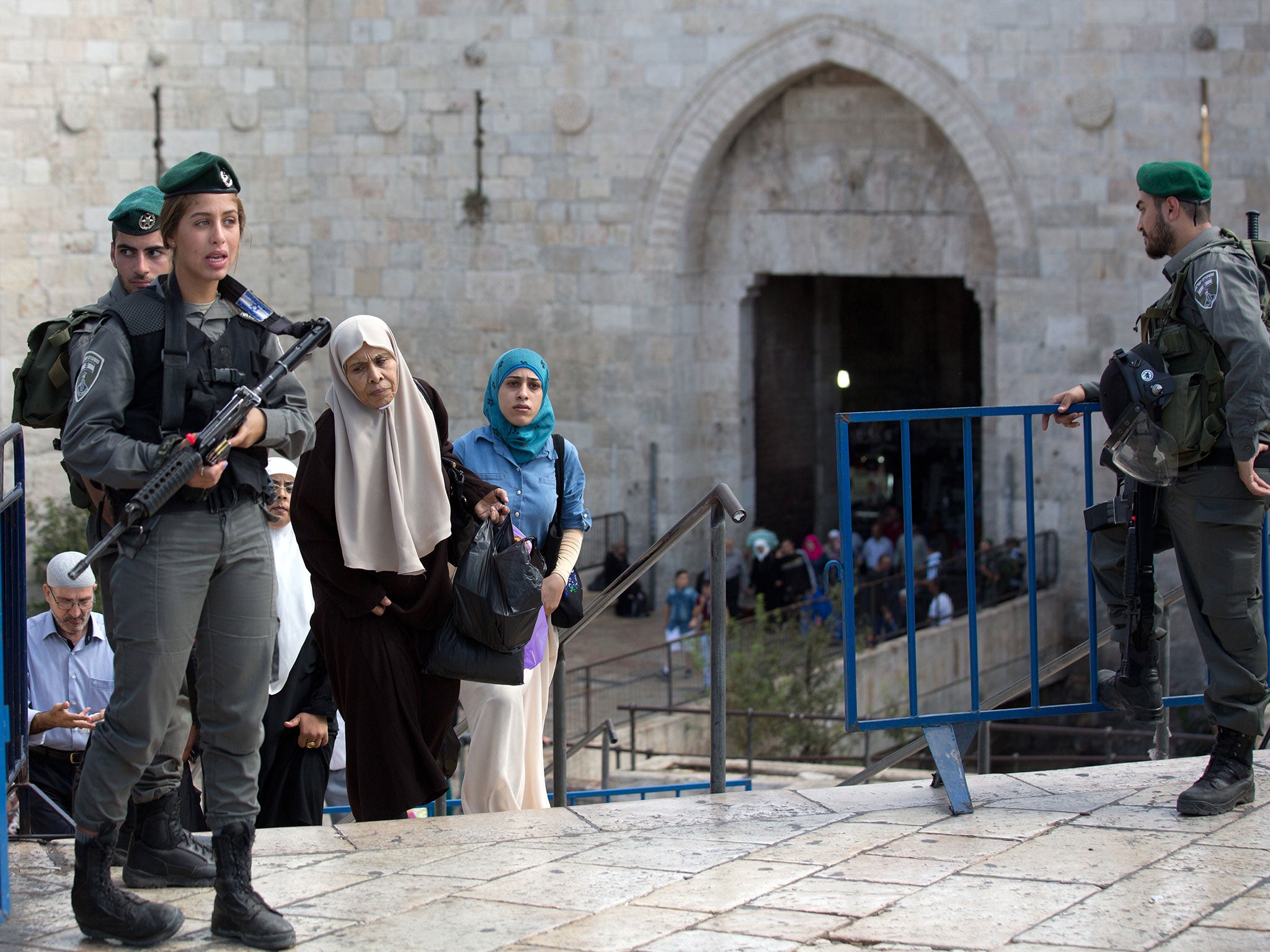Israel opens doors to more Palestinian workers in attempt to tackle violence

Your support helps us to tell the story
From reproductive rights to climate change to Big Tech, The Independent is on the ground when the story is developing. Whether it's investigating the financials of Elon Musk's pro-Trump PAC or producing our latest documentary, 'The A Word', which shines a light on the American women fighting for reproductive rights, we know how important it is to parse out the facts from the messaging.
At such a critical moment in US history, we need reporters on the ground. Your donation allows us to keep sending journalists to speak to both sides of the story.
The Independent is trusted by Americans across the entire political spectrum. And unlike many other quality news outlets, we choose not to lock Americans out of our reporting and analysis with paywalls. We believe quality journalism should be available to everyone, paid for by those who can afford it.
Your support makes all the difference.The Israeli government is pushing a plan to allow an additional 30,000 Palestinians to enter Israel for work, in a bid to ease tensions that have fuelled a four-month wave of violence in the occupied West Bank.
The plan, disclosed in Haaretz newspaper, was first proposed by the army and the Ministry of Defence and is expected to receive Cabinet approval within weeks.
A government official who declined to be identified told The Independent that “an intensive discussion is going on about steps to strengthen the Palestinian economy. We want to differentiate between those carrying out attacks and the rest of the population.”
Workers vetted by the Shin Bet internal security service will be able to take up jobs in construction, agriculture and other industries, bringing the total number of West Bank Palestinians working in Israel and on West Bank settlements to around 150,000.
The army is anxious to avoid pushing Palestinians into a cycle of violence by giving them “something to lose,” said Mati Steinberg, a specialist on Palestinian politics at the Israel Democracy Institute and former adviser to directors of the Shin Bet.
The military hopes to avoid a pattern that emerged during the second intifada, from 2000 to 2005, when army incursions and other practices took a significant toll on the population, and are believed to have contributed to alienation and anger among Palestinians.
In a speech last month at the Institute for National Security Studies in Tel Aviv, army chief of staff Lt Gen Gadi Eisenkot, a West Bank commander during the second intifada, said it was important to maintain hope among Palestinians that they will be able to make a living and to avoid new constraints on Palestinian movement, a tactic used in the past.
“It would be a bitter mistake to impose curfews and closures,” he said. The army recently brought in three temporary closures on West Bank towns from which assailants hailed, including a day-long measure against Ramallah, and it has continued the policy of destroying the family homes of attackers.
Palestine Liberation Organisation spokeswoman Hanan Ashrawi said the possibility that more Palestinian workers could enter Israel would be “a band-aid solution for a gaping wound”.
“What is needed is for Israel to understand that as long as there is an occupation and it is holding captive a whole population, there will not be any semblance of normality,” she said. “There will always be resentment, anger and resistance that expresses itself in a variety of ways. This might release the pressure valves and buy some time. But you haven’t dealt with the real issues.”
Join our commenting forum
Join thought-provoking conversations, follow other Independent readers and see their replies
Comments